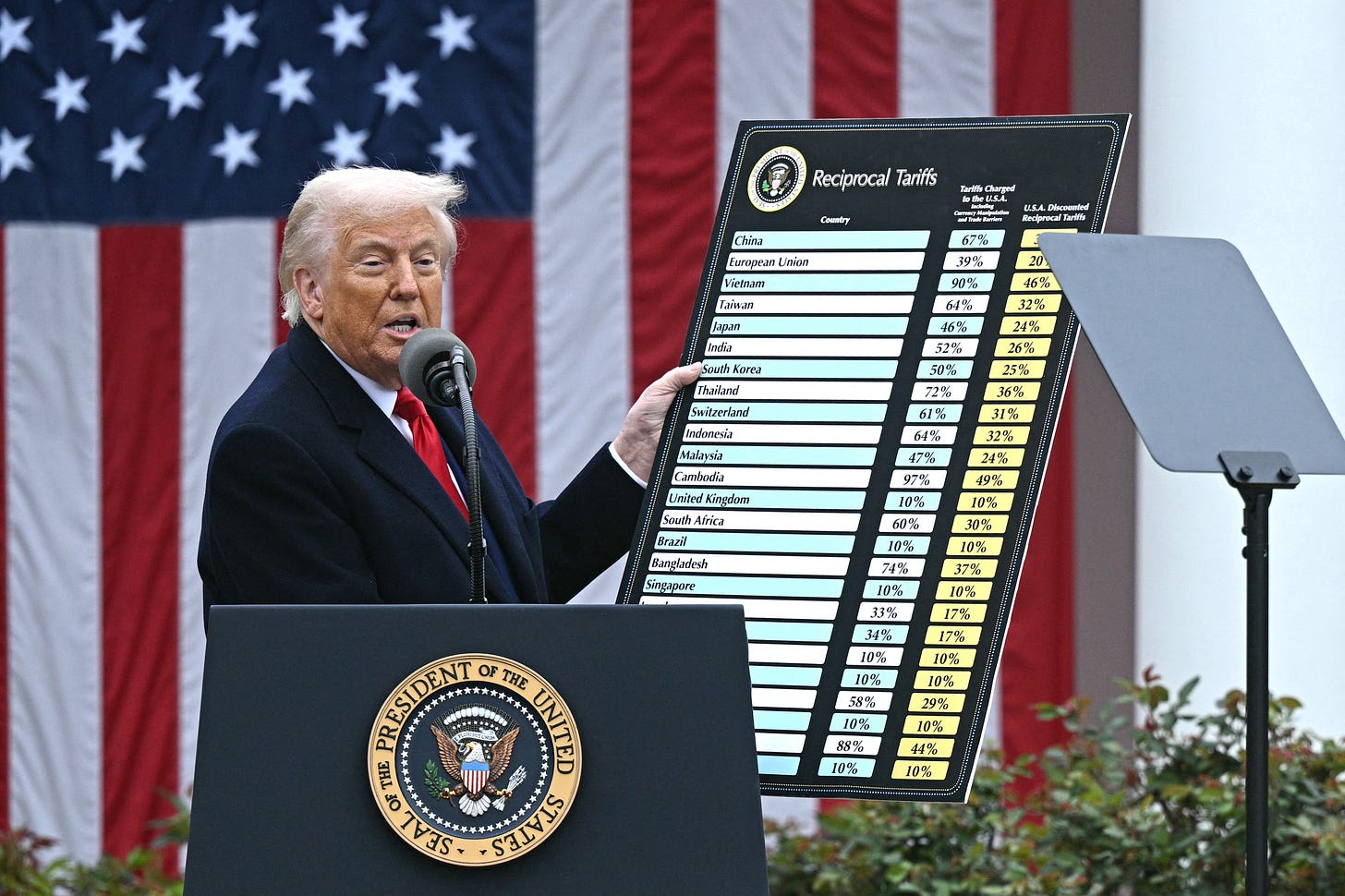Forget Trade. Here’s the Real Reason Trump Wants Tariffs
A power-crazy president is using tariff relief to force big business to kiss his ring.

Trillions of dollars lost. The stock market in turmoil. A recession possibly around the corner.
All thanks to what Donald Trump calls the most “beautiful” word in the English language: tariffs.
But why on Earth would Trump want to do this to the country, to the global economy, and to his own presidency less than 100 days into his second term? Why has he crashed his own approval ratings on this all-important issue? Lost the support, at least initially, of billionaires like Bill Ackman and maybe even Elon Musk, too?
Is it maybe because he is economically illiterate? On multiple occasions, Trump has confused the trade deficit with the budget deficit. He has repeatedly (and falsely) claimed that it is foreign governments, and not US businesses or consumers, that pay the tariffs. His formula for calculating ‘reciprocal’ tariffs was a joke.
Is it perhaps because of personal resentment? The New York Times has reported that in 1989, a year after Trump lost an auction for a 58-key piano used in the movie “Casablanca” to a Japanese trading company, he went on television “to call for a 15 percent to 20 percent tax on imports from Japan.”
Or is it because he has a grand geopolitical plan to push back against the rise of China?
Don’t. Make. Me. Laugh.
This is about power, plain and simple. An authoritarian and self-serving president who has transformed his Grand Old Party into a personality cult, and brought elite universities, major media corporations, and big law firms to their knees within weeks of returning to the Oval Office, is now seeking to use the tariff-imposing powers granted to the commander-in-chief under the International Emergency Economic Powers Act of 1977 to reward his corporate friends and punish his corporate adversaries.
Despite the endless cable news panels and financial press op-eds about the declines in the Dow and the S&P 500, and about the prospects of a recession or the chances of reshoring, it would be a massive mistake to treat Trump’s tariffs as an issue, primarily, of economics or economic policy.


